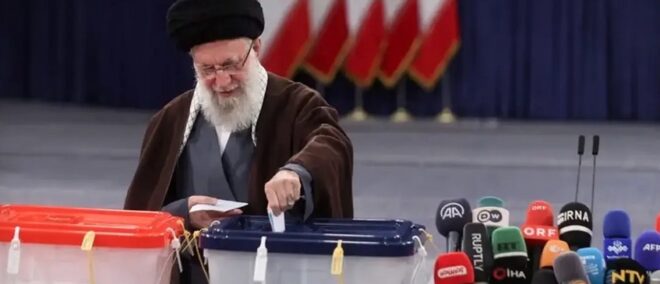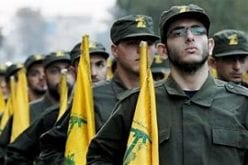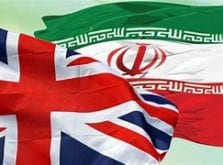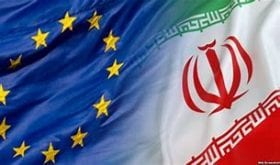Iranwire – Masoud Pezeshkian posed questions during the first one-on-one presidential debate that experts say can only be answered by Supreme Leader Ali Khamenei himself.
The debate, which took place on Monday, marked a significant shift in the tone of pre-election discussions in the Islamic Republic.
Pezeshkian, known for his outspoken nature, pushed the boundaries of traditional political discourse by addressing issues that typically fall under the purview of the Supreme Leader.
IranWire convened a panel of reporters and experts to analyze the first one-on-one presidential debate held in Iran since 2009.
“I think Mr Pezeshkian was the winner of the debate,” said Maziar Bahari, filmmaker and founder of IranWire.
“Because he asked questions from Jalili that only Supreme Leader Ali Khamenei can answer, and Jalili did not have any responses for them,” he explained.
Pezeshkian questioned the government’s stance on internet restrictions, a topic of increasing concern among Iran’s young population and tech sector.
He pressed for clarification on the country’s position regarding the Financial Action Task Force (FATF), an intergovernmental organization combating money laundering and terrorist financing.
Pezeshkian also brought up the attacks on the Saudi and British embassies in Tehran, incidents that have strained Iran’s diplomatic relations.
He sought explanations for these events and their impact on Iran’s global reputation.
Throughout the debate, Pezeshkian’s line of questioning consistently pushed into territory typically considered the domain of the Supreme Leader.
“I think Khamenei’s office would be upset after the debate, and they should be because the reason behind most of the problems in Iran is the Supreme Leader.”
Masoud Pezeshkian, the reformist candidate, believes that by improving relations with other countries and normalizing international relations, it is possible to lift sanctions, attract investment, develop tourism, and enhance business opportunities.
On the other hand, Saeed Jalili, a candidate from the hardline Front of Islamic Revolution Stability, believes in neutralizing the sanctions and making those who imposed them regret their actions.
“The Supreme Leader draws the foreign policies of the Islamic Republic,” Bahari said, highlighting the centralized nature of Iran’s power structure.
Bahari further emphasized the significant role of the Islamic Revolutionary Guard Corps (IRGC) and its elite Quds Force in shaping and implementing Iran’s foreign policy.
This underscores the complex web of influence beyond the presidential office in determining Iran’s international stance.
Despite Pezeshkian’s provocative approach in the debate, Bahari expressed skepticism about the potential for substantial change in Iran’s foreign policy.
“It will only be changed in terms of form but not in the content if Pezeshkian wins,” he said, suggesting that any shifts in foreign policy under a new president would likely be superficial rather than fundamental.
Iran’s state television kicked off the presidential debate by addressing the elephant in the room: low voter turnout.
Jalili praised the conduct of elections in the Islamic Republic but did not outline his program.
He said that the process should strive for an “optimal situation” and emphasized the need for planning, suggesting that leveraging “existing talents and platforms” is crucial for achieving results.
Pezeshkian, on the other hand, expressed concern over voter turnout, saying, “The participation that took place is worrying. It is not acceptable that 60 percent of people do not come to the polls.”
He attributed this to the exclusion of certain segments of the population, which, according to him, discourages them from voting.
“I think it is considerable that state TV started the debate with a question on the low turnout,” said IranWire journalist Pezhman Tahavori.
The unusual approach signals a growing concern within the clerical establishment about public engagement in the electoral process.
Tahavori went on to explain the broader context of the issue: “Khamenei tried to change the election to a referendum about the Islamic Republic’s legitimacy by urging for a maximum turnout.”
This strategy, according to Tahavori, backfired spectacularly.
“But the turnout surprised him despite bringing the reformists to the table, and it was a big no to Mr. Khamenei,” he added.
Despite efforts to boost participation, including the inclusion of reformist candidates, voter apathy remains a significant challenge for the Islamic Republic.
Tahavori pointed out that Saeed Jalili, who serves as Khamenei’s representative in the Supreme National Security Council, was unable to provide a satisfactory explanation for the low turnout during the debate.
“Jalili had no answer about the reasons behind the low turnout,” Tahavori noted.
Tahavori provided further insights into the reasons behind low voter turnout in Iran’s presidential election, pointing to the centralization of power under Supreme Leader Ali Khamenei as a key factor.
“During over three decades in power, Mr. Khamenei has held the electoral agencies under his grip and left them as some helpless places and people have no hope that their representatives as president and MPs would change anything.”
There is a growing perception among Iranians that elected officials, including the president and members of parliament, have little actual authority in the face of the Supreme Leader’s extensive control.
Tahavori suggested a potential solution to the crisis of voter apathy: “If Mr. Khamenei gives back the president his power as the second most powerful person, then he can expect people’s participation.”
 Shabtabnews In this dark night, I have lost my way – Arise from a corner, oh you the star of guidance.
Shabtabnews In this dark night, I have lost my way – Arise from a corner, oh you the star of guidance.



